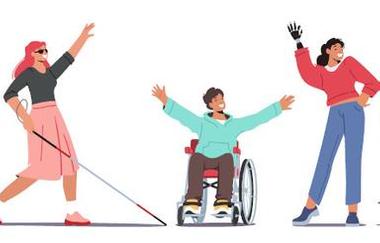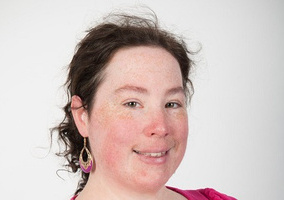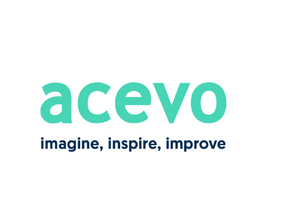The proportion of workers in the charity sector who are disabled has increased to one in four, according to government statistics.
According to estimated figures from the Department for Culture, Media and Sport (DCMS), disabled people made up 24.9% of the civil society workforce in the year to June 2023, up from 21.9% the year before and compared to 16.9% for all UK sectors.
The proportion of women in the sector also increased to 67.5%, according to DCMS, up from 67.2% the year before and 48.0% in the wider economy.
Women and disabled people have been well-represented among UK charity employees for many years but the new figures suggest the sector is increasingly under-employing people from other demographics.
Charities employed a lower proportion of people of colour in 2022-23 (9.5%) than they did the previous year (9.8%) and compared to 14.8% in all UK sectors, according to DCMS estimates.
Some 57.8% of UK charity employees had a degree or equivalent, more than the 42.8% of people in all UK sectors, which could suggest the sector is less accessible.
There were fewer young adults in the charity sector, with 6.0% of the civil society workforce under 24, up from 5.7% in 2021-22 but compared to 11.0% in all UK sectors.
Meanwhile, 16.7% of roles were London-based, down from 19.0% the year before and compared to 15.9% in all UK sectors.
Disability figures ‘Hugely encouraging’
Richard Kramer, chief executive of deafblindness charity Sense, said: “It is hugely encouraging that disability employment in the third sector is rising.
“We know that having a diverse workforce brings huge benefits and these latest figures are an example of how charities can lead the way on inclusion.
“But there is still a very long way to go. Disabled people are still vastly under-represented in today’s workforce and almost twice as likely to be unemployed.
“Many disabled people are not in work who would like to work – and with the right support, there’s no reason why they shouldn’t.
“The barriers that prevent disabled people into work, from negative attitudes towards disability to inaccessible job recruitment practices, need to be overcome.
“As charities, we must live our values, recruiting more disabled people to show what is possible.”
Chris Luck, group chief executive of Shaw Trust, said: “The civil society has long been committed to diversity and inclusion, understanding the importance lived experience brings to fulfilling mission and purpose.
“By our nature our organisations are here for public good – and in order to do this we must reflect in our workforces those we commit to support.
“This latest rise, 24.9% of civil society staff being disabled compared to 16.9% in all UK sectors, reflects the proactive approach taken by our sector in valuing talent, diversity and inclusion – and transparency in supporting colleagues proud to identify as disabled.”
Umbrella bodies plan sector workforce strategy
ACEVO’s Pay and Equalities Survey 2023 on charity sector leadership showed similar trends, with a quarter of respondents reporting a “disability, learning difference or health condition”, an increase from previous years.
It also showed the proportion of charity leaders from Black, Asian, and minoritised ethnic backgrounds had remained at 7% for the second year running.
Roberta Fusco, head of influencing at ACEVO, said: “The proportion of respondents to the ACEVO Pay and Equalities survey who consider themselves to have a disability or learning difference has shown a small year-on-year increase, which mirrors the trend reported also in the DCMS civil society workforce statistics, however there is still much room for improvement to ensure that our sector workforce is equipped to achieve the most impact.
“It’s for this reason that over the next year ACEVO and NCVO will be collaborating to convene expertise and insight from a wide range of stakeholders on a sector workforce vision that will set a clear path to achieve a workforce fit for the future.”
Meanwhile, a government spokesperson said: “Those employed in the civil society sector make an incredible contribution to communities up and down the country, often supporting those that need it most.”
Related articles












